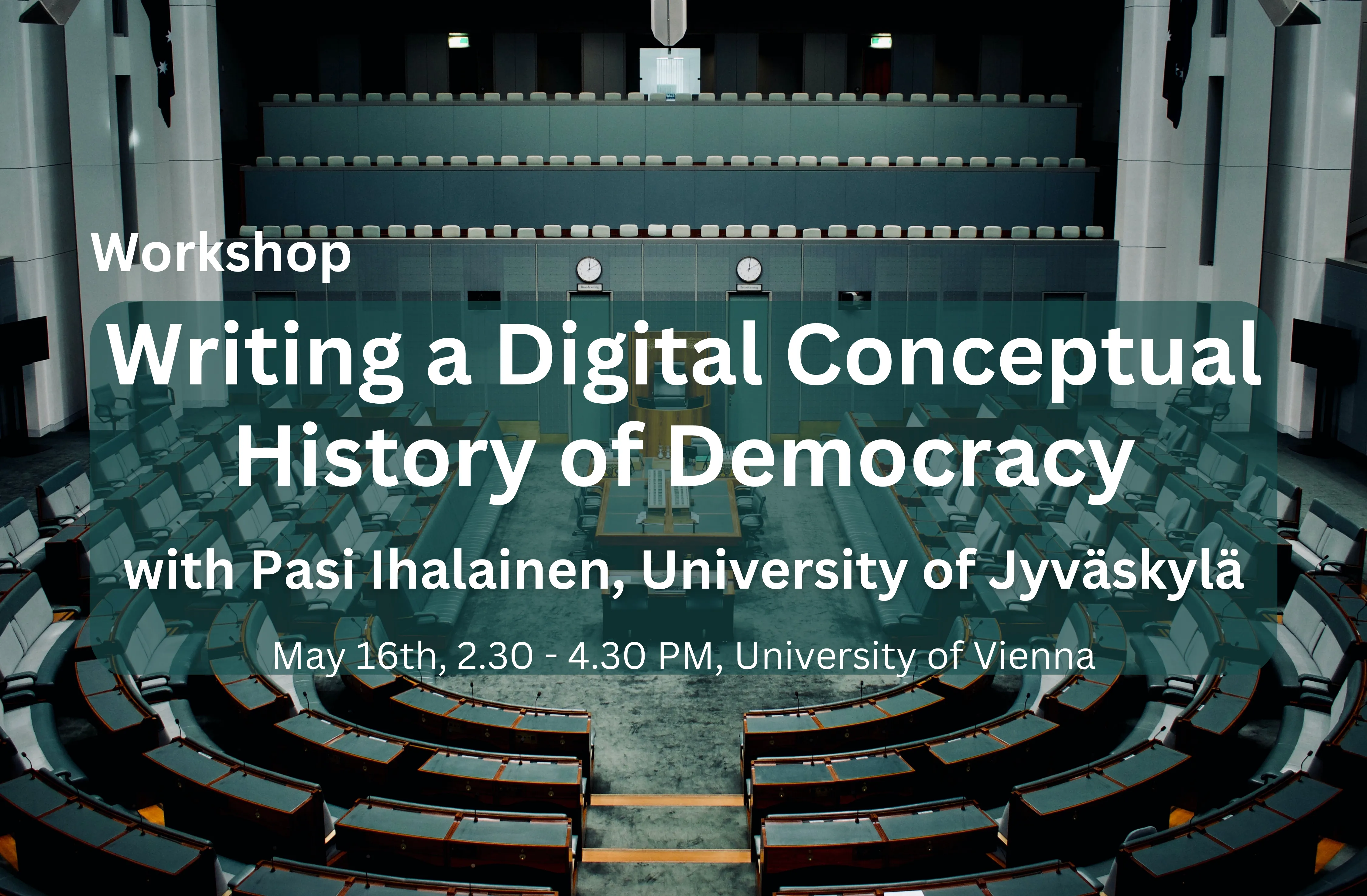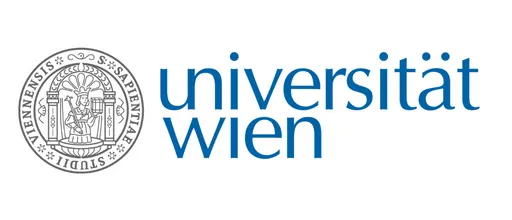
Writing a Digital Conceptual History of Democracy
Workshop with Pasi Ihalainen, University of Jyväskylä
When: Tuesday, May 16th, 14:30 – 16:30
Where: University of Vienna
Participants will be notified of the workshop venue soon after registration has closed.
Registration: Please send an email before May 1st to birgit.nagy-glaser[at]univie.ac.at
The workshop offers the opportunity to discuss a draft chapter with Pasi Ihalainen he has co-authored with Hugo Bonin and Zachris Haaparinne, and that will be distributed in advance among the participants.
In this chapter, the authors offer a practical introduction to writing conceptual history in an age of increasingly digitised primary sources and computer-assisted reading techniques. They discuss the implications of digitisation to conceptual history, bridging traditional and digital research. They argue for the benefits of combining the focus on larger linguistic trends (quantification) and contextual close reading of historical sources (qualitative analysis). Distant reading digital datasets by the means of relative term frequencies, collocations and n-grams, for example, enables us to detect changes in the
use of language that help to justify limiting qualitative content analysis to specific debates.
After closer contextualisation, it may be necessary to return to digital tools to produce quantitative proof supportive of the results.
To illustrate these principles, the authors delve into the long-term history of democracy. Democracy is a highly contested and historically elastic concept. Its analysis can benefit from big data, digital methods and tools that facilitate comparisons over time and beyond national histories. Examples focusing on its uses demonstrate how conceptual history can get hold of political action in the past.
Pasi Ihalainen is Academy of Finland Professor of comparative European history at the University of Jyväskylä and will deliver this year’s Gerald Stourzh Lecture on the History of Human Rights and Democracy on Wednesday, May 17, 6:30 pm, at Gerda Lerner Hs. 41.
Organised by:
Thomas Angerer, Birgitta Bader-Zaar,
Thomas Wallnig
